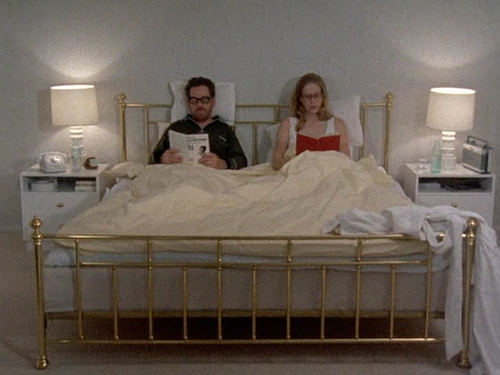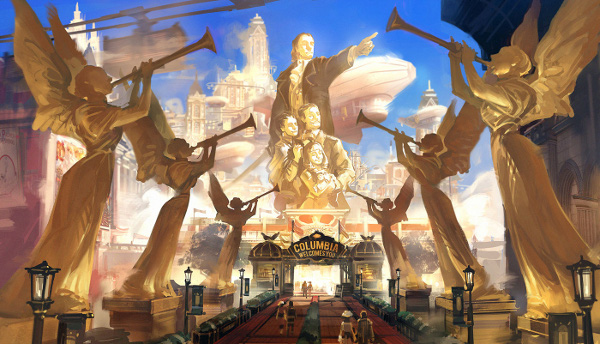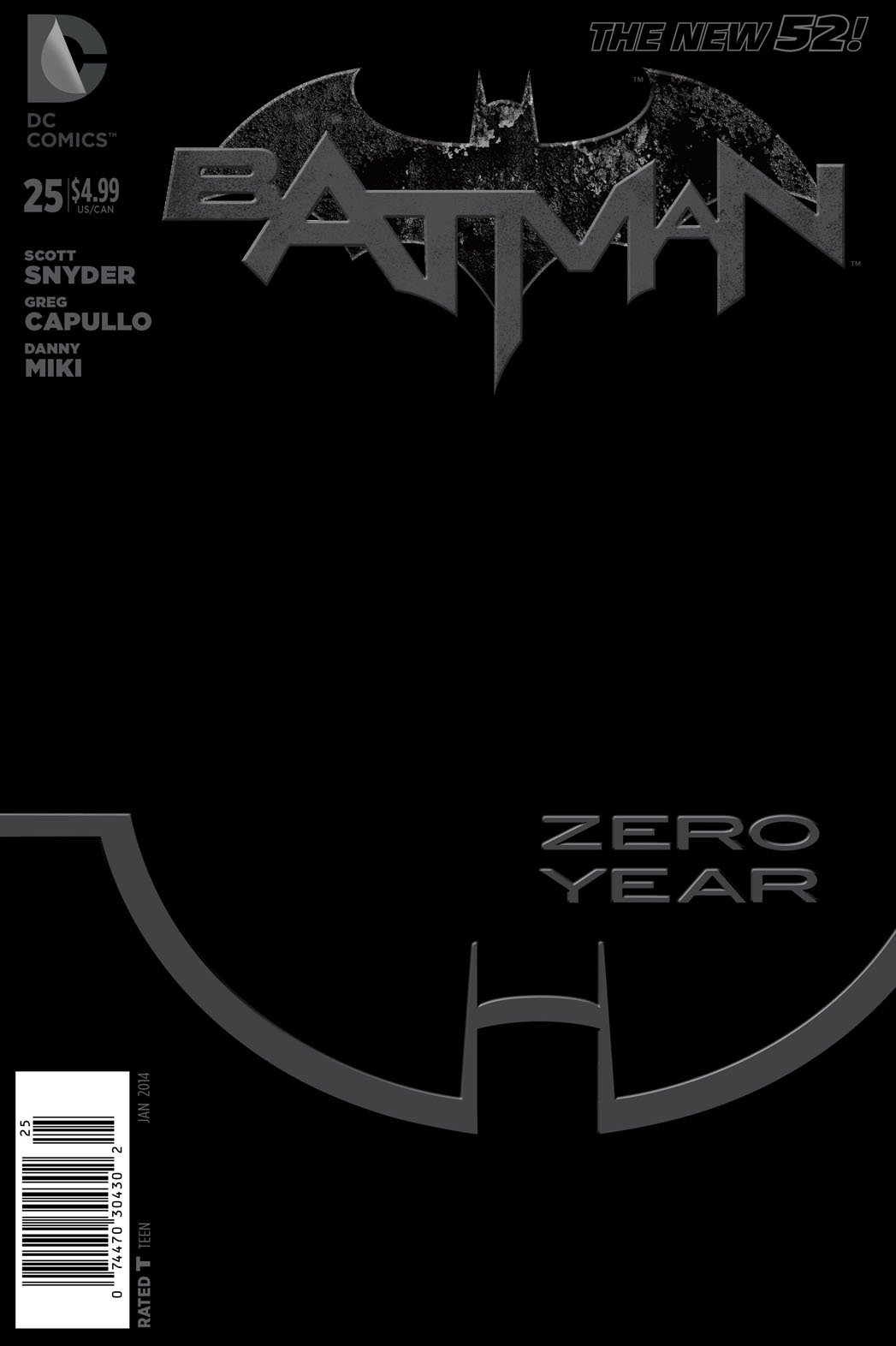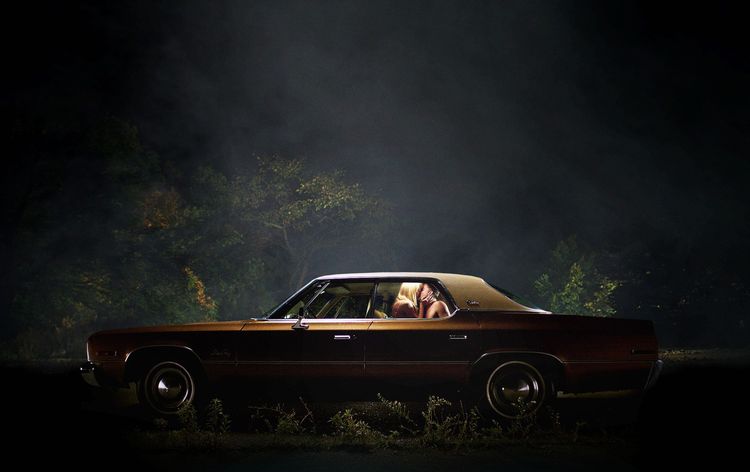Scenes from a Marriage
(299 minutes, 6 parts)
Directed by Ingmar Bergman
Written by Ingmar Bergman
1973, Sweden, SK
It should be intuitive knowledge, that one’s ability to love is often captive to one’s ability to love themselves, to be happy with where they are, where they are going and where they might never end up despite every effort. And as much as love is a feeling, it is also an action, expressed through behaviour – at least this is how its existence is often ascertained; which is often where incongruity exists between one person’s feelings of genuine affection for another and the beloved-in-question’s own perception of these feelings as expressed by the lover’s actions. To complicate matters further, how does one’s own personal disappointments and failures and existential disquiet sour and poison these unspoken exchanges of love? In other words, what do you get when you have two deeply unhappy individuals somewhat in love with each other? If this seems like an unseemly way to launch into any discussion of a miniseries, then the opening scene of Ingmar Bergman’s 1973 Scenes from a Marriage is very unseemly indeed.
Marianne and Johan are two successful upper middle-class professionals living on Bergman’s beloved island of Fårö, Sweden. Marianne is a family lawyer and Johan is a scientist, a professor. Together they own a house and a holiday home, are very financially secure, and have two lovely daughters who are almost never seen. A lifestyle publication doing a feature on married couples sends a somewhat discourteous correspondent to visit Marianne and Johan at their home. With a tape rolling and the star couple seated awkwardly on their own sofas, Scenes from a Marriage establishes it’s very Bergmanian strain of emotional and psychological articulateness (if not eloquence), its unapologetic philosophising and self-psychotherapy. It begins very innocently, the pair being pitched generic questions about what it takes to maintain a healthy, functional marriage and so on and so forth. But when Johan excuses himself for some moments and the shrewd interviewer has Marianne all to herself, the seeds of discontentment that drive this series’ drama are sown.
Marianne is no fool, and she is fully aware that she is being hustled for something scandalous, something juicy that would sell magazines. Initially cagey and unwilling to throw any doubt on what is an ostensibly sturdy marriage, Marianne nonetheless succumbs to journalistic perseverance and utters some sentiments, some revealing nuggets and facts about the origins of her relationship with Johan, enough to be pounced upon and milked dry. But once the gates have been unlatched there is an uneasy but dependable supply of doubt and uncertainty on Marianne’s part, and she becomes almost too relieved to offer it. So when Johan re-joins them there is a physical awkwardness, more so than before. Johan is here a victim of dramatic irony, perhaps of the very worst kind, and it becomes all the more painful once the tandem interview resumes. Suddenly the matrimonial and ideological consensus is not quite so strong, Marianne revealing her disarmingly pragmatic approach to marriage which contrasts with Johan’s more traditionalist romantic view of marriage as driven by love versus function, one which seems almost at odds with the circumstances surrounding his and Marianne’s initial romantic involvement. He is clearly disconcerted, she feels unduly exploited, the journalist has her piece, and we have one hell of a miniseries on our hands.
Regular Bergman player Bibi Andersson makes a welcome cameo in the second half of the debut episode as one half of Katarina and Peter, a perhaps more professionally successful husband and wife fashion duo: she being the art, he the commerce. In a very Albee-esque turn of events, the two couples do dinner and drinks at Marianne and Johan’s place, with the misery and resentment suffocating Katarina and Peter’s marriage surfacing in an increasingly grotesque manner over the course of one very long evening. As a couple recently made aware of the fracture lines in their own relationship, Marianne and Johan can only sit and quietly watch as the fault line of another’s succumbs to a quake that Katarina and Peter – it seems – might never recover from. It is a terrifying sequence not only because of the mixture of Bergman’s absolutely raw and vitriolic dialogue and his unfaltering patience as a documenter of people – fictional as they may be – but the masterful portrayals by Bibi Andersson and Jan Malmsjö of two people that are emotionally emaciated and psychologically imprisoned, and almost dependent on it. But rather than the self-righteous pity that characterises Tom and Gerri in Mike Leigh’s Another Year, Marianne and Johan are deeply troubled, unnerved perhaps with being confronted with a premonition of their own possible future. It’s a reiteration of the fact that just because you have it all doesn’t mean you have it all.
Whether or not self-revelatory monologues are part and parcel of Marianne and Johan’s daily routine, from here on in, spurred on by the inadvertent couple’s therapy that was the interview for a mere lifestyle magazine, or perhaps taking their friends’ matrimonial implosion as a warning of the dangers of unaired resentment, the central pair engages in a series of prolonged, draining, self-absorbed exchanges. Anyone familiar with Bergman, or his pseudo-protégé Woody Allen (whose 1992 film Husbands and Wives is deeply indebted to Scenes from a Marriage), will know exactly the type of scene that is being referred to. But here there is a more brooding sense of pathos, an extra fearlessness, and an unwavering intensity. Let’s be clear, these are not short bursts of confrontation punctuated by humorous exchanges or lovingly shot city streets, not to slight Woody Allen in the least. Besides, Bergman lacks the deft humour Allen uses in his own attempts to approximate truth. Each episode roughly lasts a good 50 minutes, and there is barely a moment that lacks almost oppressive emotional weight. Considering that this is the brainchild of Bergman it is safe to say that this has the distinct feel of chamber theatre, definitely, but with the kind of visual intimacy only cinema can afford. Dialogue drives the proceedings, impassioned monologues often, but the words would sound painfully commonplace if the scenes were not pushed to the point at which a kind of clarity is often reached, when things that you always knew or intuited turn out to be more profound, more right than you imagine they ever would.
But lest people get the impression that Scenes from a Marriage is a series of six hour-long bedtime arguments, there is a clear story, a progressive narrative that spans a decade-plus and is witness to some major life events, made all the more disconcerting by the relatively low importance placed on the cosmetic effects of time. Marianne and Johan look largely the same, their houses look largely the same, the overall feel is largely the same, the tone and the colour palette. In a sense nothing at all changes, maybe highlighting the way their middle-class security creates a stifling monotony that is barely affected by the stomach-turning state of flux that their inner lives are going through. Certainly, it is possible that, being a production of television, a certain shrewdness and conservatism had to be observed. Of the miniseries covered so far, ‘Scenes’ is by far the most low key. It’s boxy aspect ratio, its minimal and minimalist sets, its ascetic approach to camerawork; all these threaten to tag a flag of “television” – in its most unambitious sense – to the series. But these elements together, tied with the very spare design and Sven Niqvist’s dependably brilliant compositions and suffocatingly invasive close-ups that toe the line between the cinematic and the stagey, there is something breathtakingly modern about Scenes from a Marriage. And when each episode ends with a picaresque long-held static shot of some part of the island of Fårö, with a godlike voiceover stating the names of key cast and crew, one gets the sense that they have been afforded a grand privilege, an unprecedented peek into the souls of two anointed specimens of mankind, embodiments of the struggles of the human spirit. Yes, the feeling is not one of voyeurism but of humbling omniscience.
Liv Ullmann has perhaps one of the most soulful faces in cinema, very appropriate for a series that is almost a study of the face. She is beautiful, but you wonder what exactly makes her so. Her bottomless blue eyes are starkly emphasised by her albino eyebrows that disappear into her skin, and she carries herself with grace while being of a somewhat strapping frame. The woman has some serious swimmer’s shoulders. It’s uncanny how perfectly she seems to embody Marianne. Her character’s pragmatism and avoidant diplomacy present themselves in her tiptoeing way of walking, but her eyes betray a buried desire to give in to desire, to free herself of the idea of functional, dutiful love and embrace a more irrational one. Irrational; this would be a better descriptor of Johan than of Marianne any day. Played expertly by Erland Josephson, Johan is an emotionally heedless child of a man in some ways. Plus, Josephson’s bearded face only further suggests a certain bear-like volatility. But it is this volatility and candidness that may render Johan a more approachable or accessible character, at least at the outset. He is the first to be unfaithful, and in the scene in which he reveals his divided affections he is clunky to the point of being tactless. Marianne’s reaction to this is heartbreaking, almost pitiful, once again an expression of either a weak will or a self-righteous sense of long-suffering. Like a seasoned stage act, Ullmann and Josephson feed off of each other’s energy. Even when nothing is said or done, the drama is electrifying. As a pair and as individuals they are imminently watchable.
So what exactly do these two wrestle with amongst themselves? Personal philosophies; feelings, frustrations and grievances; dreams, plans, wishes, fears, worries; memories that linger unhealthily and a great deal of obsession. Interestingly, what starts as a series about the difficulties of love and marriage morphs into an exploration of the difficulties of being a human being, with all of our fickleness, and how this in turn affects our ability to love and be loved, to give love and to accept it. Whether or not it becomes clear to Marianne and Johan, it grows manifestly evident that they are less frustrated with each other as lovers and spouses than they are with themselves as individuals. But of course they are not always as quick to blame themselves as they are in the damning of each other. As with most of Bergman, there is a tendency to talk about everything under the cosmos, at least of the Big Questions that plague the thoughts and pain the hearts of most of us. It should be expected that a certain proportion of the potential viewership would find this to be tedious and meandering, and perhaps no one should begrudge them this opinion.
However, while Scenes from a Marriage requires a certain emotional endurance and concentration, it is not devoid of moments of levity, of humour and of great beauty. No, it is full of such moments. This is a beautiful work, a masterpiece really, one that deserves a place amongst Bergman’s best. For a start, while Scenes positions itself firmly in the Swede’s oeuvre thematically, it is still something of a unique beast, one in which the filmmaker takes his tendency towards intimate chamber dramas to a new modernist extreme aided by the inherent simplicity of television. To see this leaves little desire to see the 167 minute cut released in 1974, a year after the miniseries premiered in Sweden. The theatrical version of Carlos, for example, is a far cry from the 5-hour cut, mainly because of the story’s sweeping temporal scope, which renders a whittled-down version scanty and feeling a little rushed; disappointingly flaccid at times. Likewise, that nearly half the footage from Scenes is lost while the decade-long time-span is retained does not seem ideal. Undoubtedly, many of the scenes, all of which are deadly vital, would either be abridged or lost altogether, and as previously said, much of the power of the dialogue lies in its obsessiveness, its repetitive turning over and over of prosaic philosophy and psychological declarations, until – at a point – a whole new territory of insight is breached. It might not be truth, and this writer is certainly not a believer in capital T truth, but it certainly feels like Truth at times, or at least like something truthful.
– Temitope Ogundare









